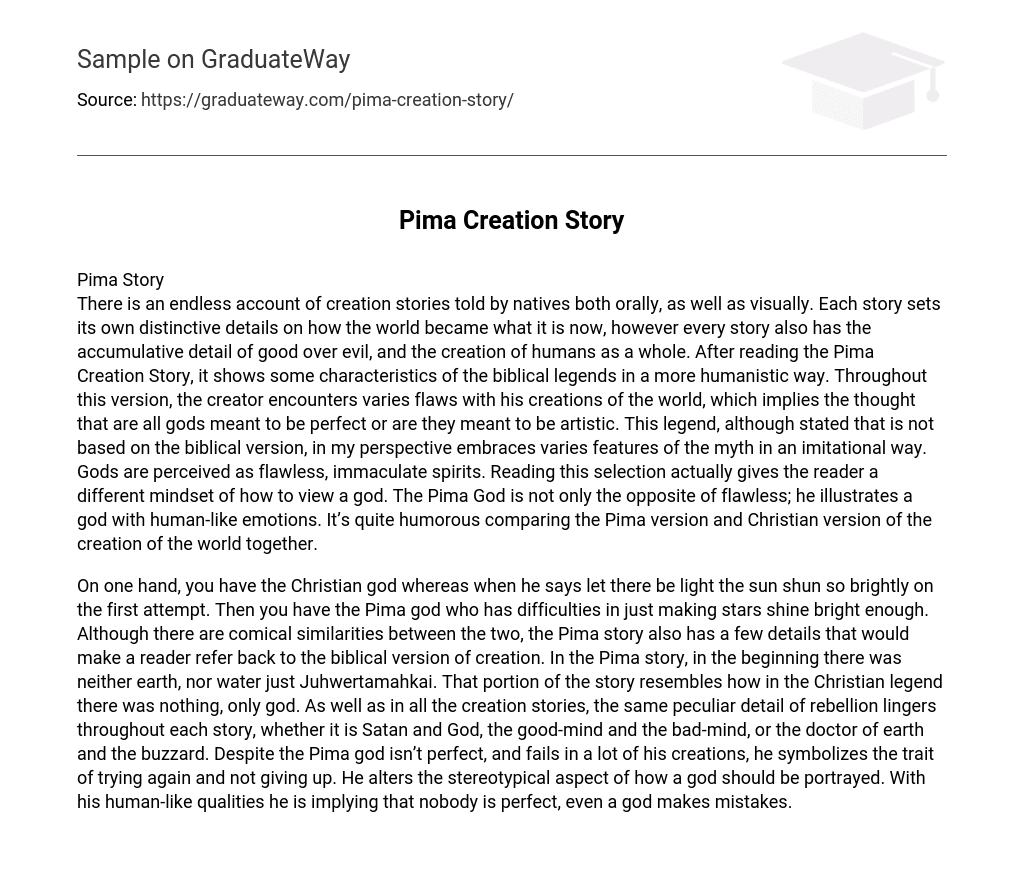There is an endless account of creation stories told by natives both orally, as well as visually. Each story sets its own distinctive details on how the world became what it is now, however every story also has the accumulative detail of good over evil, and the creation of humans as a whole. After reading the Pima Creation Story, it shows some characteristics of the biblical legends in a more humane way. Throughout this version, the creator encounters varies flaws with his creations of the world, which implies the thought that are all gods meant to be perfect or are they meant to be artistic. This legend, although stated that is not based on the biblical version, in my perspective embraces varies features of the myth in an emotional way. Gods are perceived as flawless, immaculate spirits. Reading this selection actually gives the reader a different mindset of how to view a god. The Pima God is not only the opposite of flawless; he illustrates a god with humanlike emotions. It’s quite humorous comparing the Pima version and Christian version of the creation of the world together.
On one hand, you have the Christian god, whereas when he says let there be light the sun shone so brightly on the first attempt. Then you have the Pima god who has difficulties in just making the stars shine bright enough. Although there are comical similarities between the two, the Pima story also has a few details that would make a reader refer back to the biblical version of creation. In the Pima story, in the beginning there was neither earth, nor water just Juhwertamahkai. That portion of the story resembles how in the Christian legend, there was nothing, only god. As well as in all the creation stories, the same peculiar detail of rebellion lingers throughout each story, whether it is Satan and God, the good-mind and the bad-mind, or the doctor of earth and the buzzard. Despite the Pima god isn’t perfect, and fails in a lot of his creations, he symbolizes the trait of trying again and not giving up. He alters the stereotypical aspect of how a god should be portrayed. With his humanlike qualities he is implying that nobody is perfect, even a god makes mistakes.





